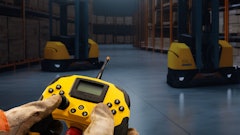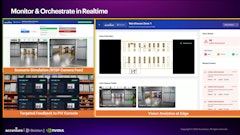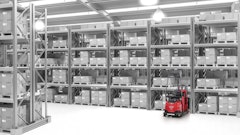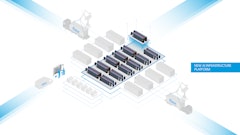
In today's global landscape, the logistics and supply chain industry is embracing an exciting transformation driven by wearable warehouse technologies. These technologies are evolving at an exponential rate, providing numerous benefits to both businesses and their workforce.
The adoption of wearables is not only making jobs easier for warehouse employees but also improving efficiency, safety and accuracy in the supply chain.
Easing the Burden on Workers
Wearables, in the form of smart glasses, wireless scanners, and other internet-connected devices, have become instrumental in lessening the material handling workload of workers.
By offering a hands-free and convenient way to access information, these devices make tasks more manageable. The result? Happier, more engaged employees who are more likely to stick around.
Boosting Efficiency in Warehouses
The heart of any supply chain lies in the warehouse, where tasks like picking, packing, and shipping must be executed with precision to meet customer expectations and enhance the overall customer experience. Wearables play a significant role in expediting these critical processes. They are equipped with sensors and connected to warehouse management software, providing real-time data and enhancing both the speed and accuracy of tasks.
Vision Picking and AI Integration
Smart glasses are increasingly popular in the logistics industry, offering hands-free communication between workers and warehouse systems. These devices can display visual and voice cues, instructing workers on their tasks, and streamlining the management process. Some companies are even taking it a step further by combining vision picking with artificial intelligence (AI) to create a human-centered automation approach. This intelligent approach optimizes pick paths, batches orders efficiently, and automates task allocation, reducing decision fatigue for operators and managers alike.
A Bright Future for Wearables
These wearable devices are not just beneficial for businesses; they also support and guide workers, bridging the skills gap and increasing workforce efficiency. Companies that embrace wearables often report improved operational efficiency, cost savings, and enhanced safety measures.
A Positive Customer Experience
In the competitive world of business, customer experience is paramount. Wearable technologies have paved the way for better access to real-time data, enabling companies to meet customer expectations and drive supply chain optimization. As warehouses continue their digital transformation journey, wearables are becoming increasingly popular tools to tackle supply chain challenges.
Through investments in advanced technology, businesses have modernized supply chain management, benefiting both the company and the workers. Wearable devices are making a positive impact, helping to retain workers, ease supply chain disruptions, and ultimately enhance the overall customer experience. As the logistics industry continues to evolve, wearable warehouse technologies will play an increasingly crucial role in shaping the future of supply chains



















